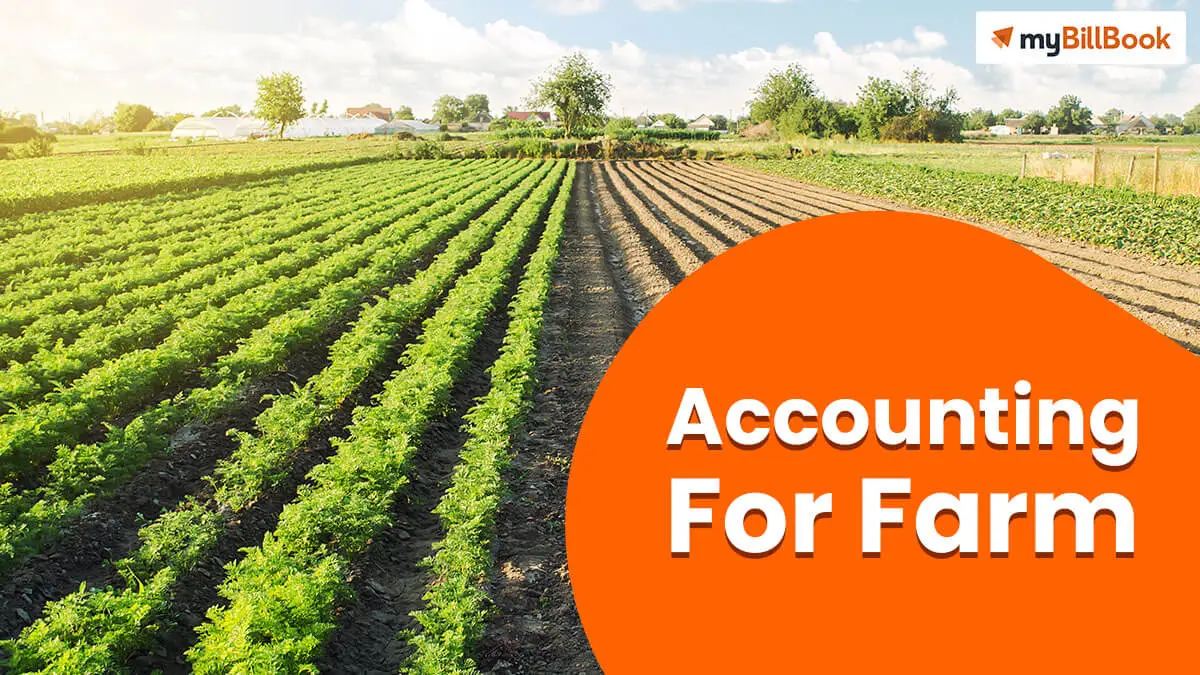The quality of financial management and accounting practices employed in a business can be crucial for its growth. It is essential to keep a tab on all investments, expenses, revenue points, and transactions to ensure zero fraudulent activities. This guide focuses on the nitty-gritty of farm accounting.
Although the basic principle of accounting remains the same across industries, farm accounting has unique challenges. It has complex demands and requires thorough knowledge of farm intricacies.
How is farm accounting different from regular business accounting?
Farming is a unique industry. Few other businesses rely so heavily on living produce, including livestock and crops. As a result, farm accounting and taxes involve unique components like farming assets, liabilities, costs, and several other metrics that go into maintaining and managing farm accounts.
There are a lot of unpredictable factors that involve managing accounting for a farm. As an industry, farming can be highly regulated and subsidised depending upon the location. Then comes the weather, which bears an immense impact on farming activities. Apart from these, several other factors come into play, including different crops for different seasons, drastic price variations, daily wage labourers, contract farming, etc. Accounting for such elements is far from straightforward.
Farm accounting usually demands separate accounts for the sale and purchase of items. These individual accounts enable the farm owner to ensure that there is no leakage of funds.
Cash vs accrual
Another way farm accounting is different from regular business accounting is that it usually works on the cash method. In the cash method of accounting, it doesn’t matter when a contract is signed or service is provided – the income is recorded only when the cash amount is received. Similarly, expenses are recorded only when the check is prepared and ready. However, in the accrual method, income and expenses are recorded as they are earned, irrespective of when the money is paid or received. Also, expenses are recorded in the same period as that of related revenues. This is called the ‘matching principle’.
Also read about Accounting Vouchers
Things to consider for farm accounting
The land is an asset
Your agricultural land is a financial asset. A well-managed piece of land should not depreciate quickly. There are chances it might go up in value. You should take into account the cost incurred for the maintenance of your land. Everything related to land maintenance should be incorporated into the records, including fertiliser, irrigation, pH management, drainage, and pest control.
Track your stock
Livestock stats always keep changing. As a farm owner, you should always know your stock. If you deal with livestock, you should know how many animals you have, how many died, and how many were born in a particular period. Your animals form your stock, and your stock has value. If there is a change in the stock numbers, you must record these in your accounts.
Sync your accounting calendar to government’s
The government decides time frames to classify animals into different maturity groups. Please keep track of when your livestock is born, as this can determine whether they comply with the government’s age standards. Carefully plan your livestock breeding according to the government’s calendar to reduce the accounting hassle.
Keep an eye on depreciation
Farming usually involves the use of technological equipment. This equipment can be tractors, trucks, computer equipment, harvesting equipment, and even hand tools. Remember that new equipment can be an offset against tax. However, the value of this equipment will decrease with time as it grows obsolete with the arrival of new technology. So, it is crucial for farmers to understand the rules of depreciation.
Record losses
Weather plays a crucial role in farming and is also one of the most unpredictable factors. It is not unusual for weather leading to a bad harvest. A dry summer might be great for wine farmers but not so great for people who grow rice. You must account for any losses incurred, as they can reduce your tax burden. The idea is to make sure that you don’t pay tax for something that didn’t fetch you profits.
Also check: Free GST Billing Software
Why do you need software for farm accounting?
Managing a farm is a tricky business. Each daily task has to be accomplished according to a fixed schedule. As a farmer, you must water the crops, feed your livestock, and handle and use different equipment and tools. Most of these tasks need to be accomplished before sunset. It wouldn’t be wrong to say that farming requires more physical effort than most businesses. On top of this, managing, analysing, and recording accounts can further make the job more challenging.
Accounting software enables you to manage your farm on the go. Integrated accounting software can help you keep track of all your farm operations. It also offers tools to help you keep track of your receivables and payables. Since farming consists of multiple cash transactions, maintaining records of receivables can be complicated and time-consuming. Accounting software will help you remove the dependence on hand-written accounts and allow you to keep track of due payments.
Why should myBillBook be your go-to farm accounting software?
Manage everything on the run
myBillBook is cloud-based accounting software. You can use it to check your account balance, send an invoice, check stocks, etc., anytime and anywhere.
Data accuracy
With so many metrics and factors involved, farm accounting requires complete data accuracy. myBillBook replaces manual records and data entry. Thus, you can ensure data accuracy and remove all scope for errors.
Get paid faster
For farmers, delayed payments can be a huge problem. With myBillBook, farmers can send invoices to their clients in just a few clicks to remind them of the approaching due date.
Cut the clutter
Farming involves a lot of paper invoices, ledgers, and balance sheets. myBillBook helps you cut this clutter and go completely paperless. You can reduce paper wastage significantly by switching to online bookkeeping.
Valuable insights
With all the complexities involved, financial planning is usually a tricky business for farmers. myBillBook provides you with real-time reports on revenue numbers, profits, loss, etc. Thus, you get access to accurate insights and are in a better position to make crucial business decisions for your farm.








